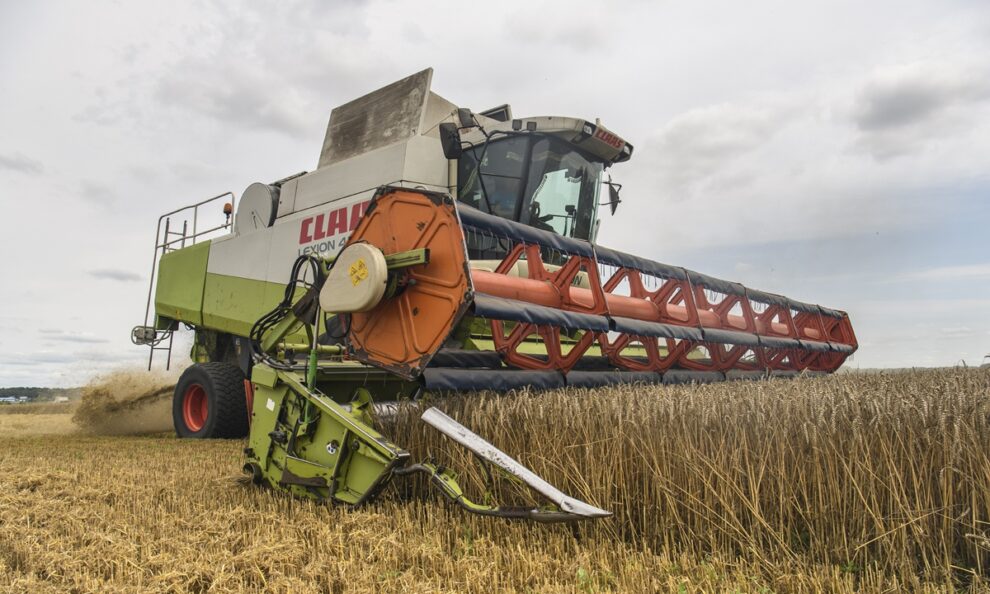The United States joined representatives from Romania, Ukraine, Moldova, and the European Union for a second high-level meeting in Constanta, Romania to accelerate Ukrainian grain exports and address the global challenge of food insecurity caused by Russia’s decision to withdraw from the Black Sea Grain Initiative (BSGI) and attack global food supply.
Russia’s unilateral withdrawal from the Black Sea Grain Initiative (BSGI) and its recent attacks on port and grain infrastructure in Ukraine have disrupted grain markets and global food security – including in the Global South and food insecure countries around the world. Prior to Russia’s withdrawal from BGSI’s, hundreds of vessels have embarked on a vital mission, delivering nearly 33 million metric tons of grain and foodstuff worldwide from Ukraine via the Black Sea. Notably, almost 19 million tons reached developing nations, offering indispensable support for global food security and stability. While Russia has chosen to weaponize food, the United States, Romania, Ukraine, Moldova, and the European Union are pursuing viable solutions to counter Russia’s callous actions. This second multilateral gathering of high-level representatives shows our resolve and commitment to getting Ukrainian grain and foodstuffs to market despite Russia’s destructive actions.
During the meeting in Constanta, participants recognized the instrumental role played by Romania and Moldova in facilitating the export of millions of tons of Ukrainian grain that has been critical in averting widespread hunger and reinforcing global food security efforts. Participants also recognized the substantial benefits the acceleration of Ukrainian grain exports would bring the populations of Ukraine, Romania, and Moldova. The collaborative efforts to modernize rail, river, and port infrastructure will not only enhance the efficiency of grain transportation but also stimulate economic growth within the three countries. The upgraded transportation networks will lead to increased trade activity, thereby generating more employment opportunities and contributing to the countries’ revenue. As workers in these partner countries engage in the construction, maintenance, and operation of these crucial infrastructures, they will experience improved job prospects and heightened economic prosperity.
The United States remains committed to deepening its partnership with the government and people of Ukraine. By channeling financial support, diversifying export routes, and pursuing modernization initiatives to fortify border crossings, the United States is playing a pivotal role in enhancing Ukraine’s grain export capacity.
These measures underscore substantive progress towards enhancing grain exports from Ukraine. In this context, it is vital that we dispel Russia’s disinformation campaign blaming sanctions for the global food security crisis. Russia’s claims are baseless; sanctions have not targeted Russian agricultural products and fertilizer. Instead, Russia imposed restrictions on these exports. The falsehood of Russia’s claims is evident, as it is exporting food at levels comparable to or exceeding pre-war levels. There is also no excuse for Russia deliberately targeting and destroying grain that is desperately needed in vulnerable nations – Russia bares full responsibility for its actions. It is also unacceptable that while carrying out these inhumane attacks Russian drones have ended up on Romanian territory – Russia must desist immediately. In his call with Foreign Minister Odobescu last week, Secretary Blinken affirmed the United States’ unwavering support to Romania, our NATO Ally. The United States reiterates its call on Russia to cease attacking Ukrainian cities and infrastructure immediately, rejoin the Black Sea Grain Initiative, and extend, expand, and fully implement the agreement.
Today’s meeting was attended by U.S. Department of State Sanctions Coordinator Ambassador Jim O’Brien, U.S Ambassador to Ukraine Bridget Brink, U.S. Ambassador to Romania Kathleen Kavalec, and U.S. Ambassador to Moldova Kent Logsdon, who joined Romanian Minister of Transport and Infrastructure Sorin Grindeanu, Ukrainian Deputy Prime Minister Oleksandr Kubrakov, Moldovan Minister of Infrastructure and Regional Development Andrei Spinu, and Director General of European Mobility and Transport Magda Kopczynska.
Surce : US Embassy















